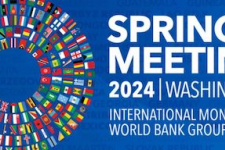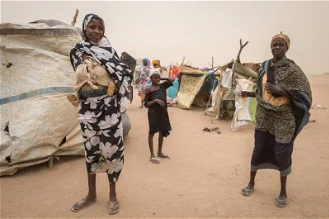Most Brits say key to happiness is helping others

More than half of Britons believe helping others in the UK and abroad is important to achieving happiness, a new poll has revealed.
On the eve of the release of a new report into human wellbeing, the survey found that 75% of those asked believe helping people in the UK is key to happiness, with 54% citing helping those abroad as important to happiness. Nearly 90% of people said that living in a world where the environment is protected and where poverty does not exist is important.
The poll, by aid agencies CAFOD and Tearfund, and think-tank Theos, asked British adults to identify what makes them happy. The top priority for 97% of people was spending time with friends and family, while having an interesting job was important for 92%. A high income was a much lower priority at 64%.
Tearfund Chief Executive Matthew Frost said: “It’s interesting that in this time of economic uncertainty, when we might have expected people to prioritise income over all else, we have instead found that people look outwards to the state of the environment, world poverty and personal relationships with others as their measures of happiness.
“It is hugely important to people to enjoy interesting and productive work, and to have healthy relationships and friendships – people measure happiness by what they give to others and what they gain in return. Of course a level of financial security is essential, but it’s clear that British people recognise that the people in our lives come first.”
The poll was conducted to coincide with the launch, on 13 October, of Wholly Living, a report by Catholic aid agency CAFOD, Christian relief and development agency Tearfund and the public theology think-tank Theos. The report examines human wellbeing in the context of both the UK and international development. It invites the UK government, as well as people of all faiths and none, to enter the debate on how best to create an environment in which to engender human flourishing. Examples taken from the UK and the developing world indicate that people are most fulfilled when they are productive, creative and have strong relationships with others.
CAFOD director Chris Bain said: ”Society is more than its economy and this new report shows that human beings, whether in rich or poor countries, thrive when they have more than just material goods. Real happiness is difficult to define and is different for different peoples and cultures, but what is clear is that community and caring inter-relationships with other people and with our environment are vital for wellbeing.
“It is time for the UK government to reflect this vision in its policy decisions to shape a new sustainable market system that puts people and our environment right at its heart. The present economic downturn has been catastrophic for many of the poorest across the world and in the UK. We must not make the same mistakes again – just patching-up the tears in this self-centred market system could lead to wider devastation and bigger financial losses when the next crash comes.”
Wholly Living calls for a holistic approach that recognises that economic growth is an important – but not the only – driver towards human fulfilment and that unless growth is sustainable, it can do more harm than good. It argues that people flourish most when they are able to fulfil their potential and live in healthy relationships with others. Drawing on academic and theological understandings of flourishing, it calls for the UK government to consider a range of policy ideas in the areas of economics, environment and governance. In particular, it calls for:
A high profile Prime Ministerial Commission to look at wellbeing (human flourishing) to review current research in this area, consider how to apply a human flourishing approach to policy decisions and to assess potential new indicators for measuring progress – a Human Flourishing Index.
Accountability and transparency of British businesses operating worldwide through appropriate legislation.
The UK and other countries to lead the way in radically cutting carbon emissions, so that developing countries have enough environmental space to develop in a way that benefits poor communities.
The UK to help achieve greater equity at a global level, for example, ensuring that the voices of developing countries are given parity within global bodies such as the World Bank and the IMF, to help tackle the current sense of disempowerment in poorer parts of the world.
Paul Woolley, director of Theos, said: “This report is the product of a year-long research project into what constitutes human flourishing. Wholly Living highlights the inadequacy of traditional indices of development and sets out a more holistic approach. State action can't make people more productive, creative or relational, but it can remove obstacles that impede these qualities and encourage a change in attitudes. We hope that UK policy will be re-shaped accordingly.
“While the theory of human flourishing outlined in Wholly Living draws on a Christian understanding of humanity, the resulting recommendations are profoundly relevant for all people.”
Source: CAFOD





















